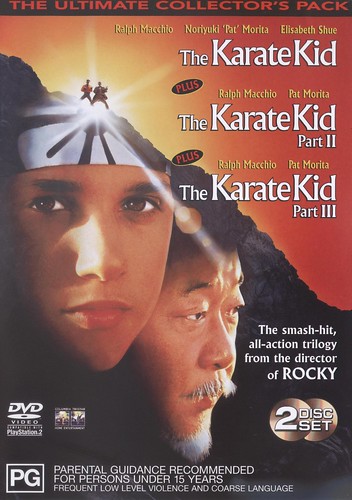
Easter weekend and the weather scuppered camping plans, so I'm bored! Time to catch up on my much neglected blog.
On 21st March I attended mentor training to register as a mentor for the CILIP Framework of Qualifications. The course I attended was at UWE, Bristol (Frenchay Campus) but you can find local courses on the CILIP training pages.
We didn't get to do any "wax-on, wax-off" but on the whole I found it a really useful day :-) The training included plenty of activities as well as some background information from the facilitators. The morning looked at defining mentoring, considering different learning styles, essential skills for mentoring and mentoring styles... the afternoon session was more about explaining the CILIP mentoring scheme e.g. processes for setting up a mentoring agreement.
I found the morning exercises around core skills like active listening, questioning, and giving feedback really useful - and I think it's also helpful to think in terms of these three skills. I'd certainly like to develop my questioning and feedback skills and I think these are at the core of mentoring. Rather than suggesting solutions it's about asking questions and suggesting points of view that enable the mentee to get to solutions. This is really difficult - if you think you can see the answer to a problem (as a mentor) it's really hard not to just jump in and blurt it out. Getting the mentee to the solution can be time consuming - and doesn't always get you to the answer you expected - but the mentee should be the one coming up with the solutions and learning from whether they worked or not.
In particular, chartership candidates are reaching a level of professionalism where they are moving from roles where you are given tasks to complete (e.g. as a library assistant or in an operational role) to being given more strategic objectives (e.g. in a 1st professional role) where the expectation is that you'll be working in a much more independent way, and may need to influence or motivate others into action. That's really the difference for me. Nobody knows all the answers straight away, but though talking through challenges and barriers (especially with people with a very different perspective) the mentee can come to their own solution.
There was a bit on learning styles and mentoring styles (based on Honey and Mumford and Clutterbuck respectively). I think what's interesting here is that you may go through different learning styles at different times or for different tasks. Also, regarding mentoring styles, it may be necessary to go through a number of different styles in the course of a mentoring relationship but I guess the aim is to move from directive to non-directive styles to get to independent learning.
The stuff in the afternoon on the actual processes was also useful and the handouts were really good and something I'm sure I'll be referring back to often!
I'd recommend this course to anyone considering mentoring for CILIP or also possibly for anyone interested in taking on mentoring roles within their work situation.


No comments:
Post a Comment